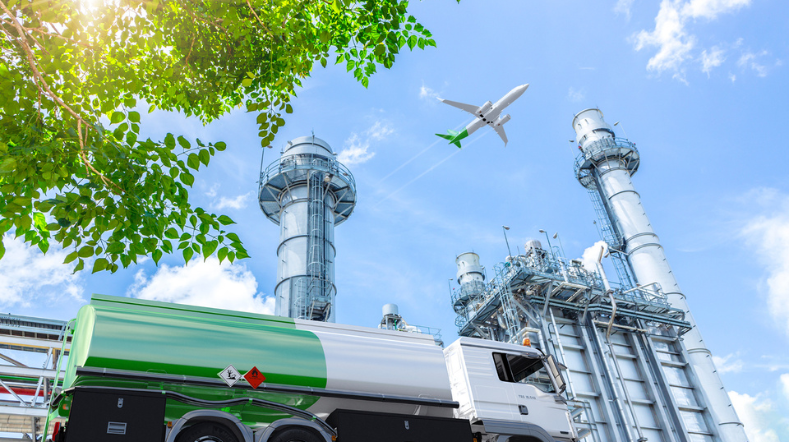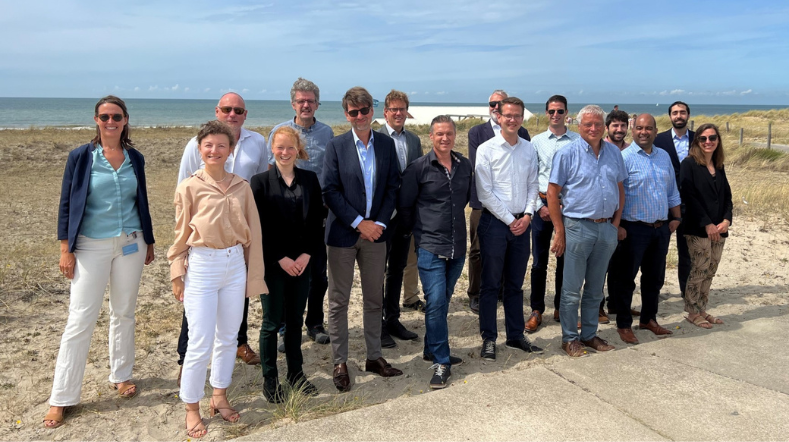Transition to e-fuels: a strategy for HIC Rotterdam
Status project
Upcoming project
In cooperation with
VoltaChem, Smartport
In transition towards sustainable fuels such as e-fuels, HIC (Harbour and Industrial Cluster) Rotterdam is expected to retain its hub function for energy and feedstocks. However, in the future their focus will be less on local fuel production, and more on logistics and international transport to bring hydrogen, e-fuels and chemical commodities to customers in their hinterland. While hydrogen is expected to be still partly produced locally, the lion's share of e-fuels will be imported.
CHAIN project
This is the outcome of the CHAIN project, in which SmartPort and Voltachem asked the experts from TNO and a group of stakeholders (BP, Deltalinqs, Gate Terminal, Nouryon, Port of Rotterdam, Shell, Sohar Port/Freezone and Vopak) to consider the following questions: What would be a logical role for HIC Rotterdam in the e-fuels value chain? And which part of the value chain (production, storage, infrastructure) can best be attracted to Rotterdam?
In an earlier Power-2-Fuels study, we showed that e-fuels, produced from green hydrogen, will most likely supply a considerable share of the demand for sustainable fuels, starting from 2030.
Hub function e-fuels
For e-fuels, the creation of limited local strategic production capacity is important in order to stimulate development of innovative production technologies and to secure a future position in production, use and transit of hydrogen and e-fuels. Hydrogen will be one of the main feedstocks in the transition.
From a strategic and economic point of view, hydrogen should be produced locally as much as possible. Due to the fact that conversion to a carrier like LOHC or liquid hydrogen is not needed when hydrogen is produced locally, it will be more economic than import, when used directly as an e-fuel.
However, the lion's share of e-fuels, other than hydrogen, will in the long run probably be imported. This is necessary since the Netherlands is expected to have a shortage of renewable energy due to the further electrification of society as a whole. In addition, production of e-fuels in the Netherlands is considerably more expensive than import from countries with low energy costs.
In order to limit international (geo)political dependance, it is important to exert influence by developing relationships with the right parties and countries, and to set up initial pilots for import/export and technology development.
Impact on value chains sustainable fuels
The energy transition will have a major impact on all actors involved in the transport value chain. This includes end users, refineries and other fuel producers, port operators, vehicle suppliers, refueling infrastructure providers, storage providers and all connected value chains.
Large reductions in CO2 emissions are necessary for companies to maintain their “license to operate.” To actually establish the transition to e-fuels, structured cooperation throughout the entire value chain, on a regional to global level, is essential.
Local and international collaboration is key
Concluding, it can be stated that a transition to e-fuels will face HIC Rotterdam with lots of challenges, but when all stakeholders unite forces, they can pave the way towards a future in which transport has become sustainable and in which HIC Rotterdam can maintain its role as major energy hub.
Next steps
The CHAIN study raises new questions that need attention in follow-up research such as: what will be the impact on Rotterdam as a bunker port? And how will the petrochemical cluster and its feedstock streams change? This will be addressed in follow-up research by VoltaChem, Smartport and TNO.
Read the full report
'Transition to e-fuels: a strategy for the Harbour and Industrial Cluster Rotterdam'
Get inspired
Local, circular, and biobased: towards the textile industry of the future with HEREWEAR


Renewable fuels


TNO develops method to produce biocarbon


New technology combines biocarbon production for industry with negative emissions

Producing renewable DME using renewable energy and CO2


